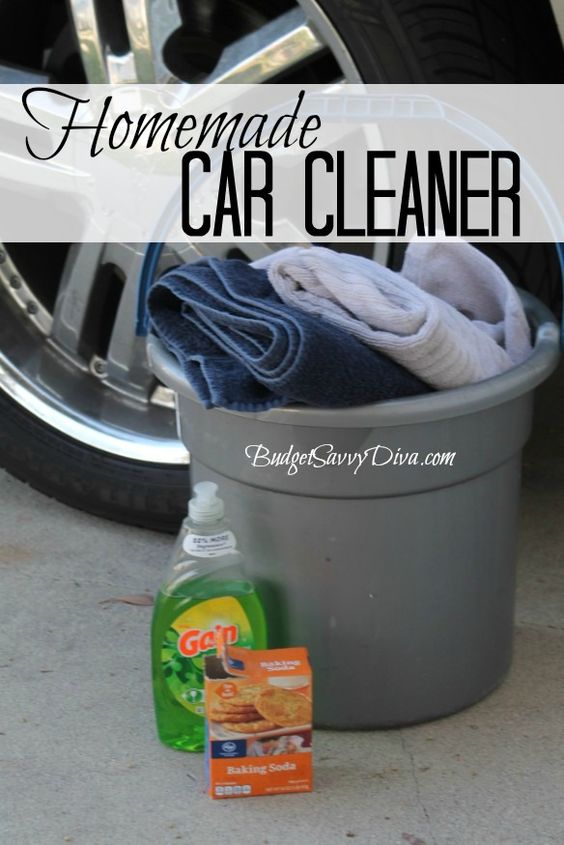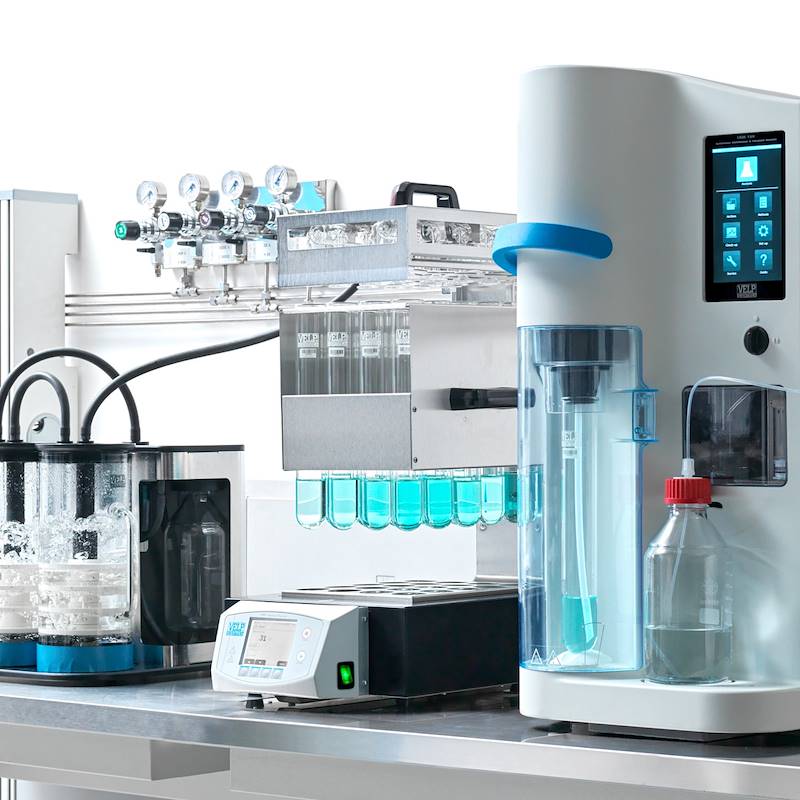
Maintaining a vehicle’s pristine appearance can be a source of pride for any car owner. However, the cost of professional car washes or even store-bought car cleaning products can quickly add up, impacting your budget. Many of these commercial options also contain harsh chemicals that, while effective at removing dirt and grime, can be detrimental to your car’s paint job and the environment. Scratches and dullness become unwanted companions of frequent washes.
Considering the impact on both your wallet and the environment, many car enthusiasts are turning to cost-effective and eco-friendly alternatives. The good news is that achieving a sparkling clean vehicle doesn’t necessarily require expensive products or harmful chemicals. There’s a growing interest in finding ways to maintain our vehicles without breaking the bank or contributing to environmental pollution.
This shift in mindset has fueled the exploration of natural, readily available ingredients that can be combined to create powerful cleaning solutions right in your own home. Imagine being able to wash your car with products you already have in your pantry, knowing you’re not only saving money but also contributing to a healthier planet. This is the appeal of a DIY approach to car care.
The quest for affordable and environmentally friendly car cleaning methods has led many to explore the world of homemade solutions. It’s a journey that combines resourcefulness with a desire for sustainability. You get to customize the cleaning power to suit your vehicle’s specific needs, ensuring a gentle yet effective wash every time.
This article is dedicated to exploring the realm of **Homemade Car Wash Soap Recipes**. We’ll delve into a variety of formulations, highlighting their unique benefits and the ingredients you’ll need to whip them up. Prepare to unlock the secrets to a gleaming, showroom-worthy finish, all while keeping your wallet and the environment in mind.
Understanding the Basics of Car Wash Soap
The Importance of pH Balance
When considering **Homemade Car Wash Soap Recipes**, it’s crucial to understand the importance of pH balance. The pH scale ranges from 0 to 14, with 7 being neutral. Solutions with a pH below 7 are acidic, while those above 7 are alkaline. Car paint is most vulnerable to damage when exposed to highly acidic or alkaline substances.
Commercial car wash soaps are typically formulated to be pH-balanced, meaning they hover around the neutral level. This ensures that the soap effectively removes dirt and grime without stripping away the wax or damaging the clear coat. Using a soap that is too acidic or too alkaline can lead to paint fading, etching, and other forms of damage over time.
When creating your own **Homemade Car Wash Soap Recipes**, it’s essential to consider the pH levels of the ingredients you’re using. For example, vinegar is acidic, while baking soda is alkaline. Combining these ingredients can help to neutralize the pH of the final solution. However, it’s important to test the pH of your homemade soap before using it on your car.
You can purchase pH testing strips online or at most drugstores. Simply dip a strip into your homemade soap and compare the color of the strip to the chart provided. Ideally, your homemade car wash soap should have a pH between 6 and 8. If the pH is too low (acidic), you can add a small amount of baking soda to raise it. If the pH is too high (alkaline), you can add a small amount of vinegar or lemon juice to lower it.
By paying attention to the pH balance of your **Homemade Car Wash Soap Recipes**, you can ensure that you’re cleaning your car safely and effectively, without damaging the paint or other surfaces. This is a crucial step in protecting your investment and maintaining the appearance of your vehicle for years to come.
Avoiding Harsh Chemicals
One of the biggest advantages of using **Homemade Car Wash Soap Recipes** is the ability to avoid harsh chemicals commonly found in commercial car cleaning products. These chemicals, such as phosphates, solvents, and strong detergents, can be harmful to both your car and the environment.
Phosphates, for example, can contribute to water pollution and algal blooms. Solvents can strip away the wax and oils from your car’s paint, leaving it vulnerable to damage. Strong detergents can be harsh on your skin and can also damage the rubber and plastic components of your car.
By using natural, readily available ingredients like dish soap, baking soda, and vinegar, you can create effective car wash solutions without exposing yourself, your car, or the environment to these harmful chemicals. These ingredients are generally safer, more biodegradable, and less likely to cause damage.
When selecting ingredients for your **Homemade Car Wash Soap Recipes**, it’s important to choose options that are gentle and non-abrasive. Avoid using abrasive cleaners or scouring pads, as these can scratch your car’s paint. Instead, opt for soft sponges or microfiber cloths.
Furthermore, it’s advisable to research the ingredients you plan to use to ensure they are safe for your car’s specific materials. For instance, some ingredients may not be suitable for use on certain types of paint or trim. By taking these precautions, you can enjoy the benefits of homemade car wash soap while minimizing the risk of damage.
Simple and Effective Homemade Car Wash Soap Recipes
The Classic Dish Soap Solution
One of the simplest and most widely used **Homemade Car Wash Soap Recipes** involves using dish soap. Dish soap is readily available in most households and is effective at cutting through grease and grime. However, it’s important to use dish soap sparingly, as it can strip away wax if used in excessive amounts.
To make a classic dish soap solution, simply add a small amount of dish soap (about 1-2 tablespoons) to a bucket of warm water. Mix well until suds form. Use a soft sponge or microfiber cloth to wash your car, starting from the top and working your way down. Rinse thoroughly with clean water.
When choosing a dish soap for your **Homemade Car Wash Soap Recipes**, opt for a gentle, pH-balanced formula. Avoid using dish soaps that contain harsh chemicals or abrasives. Dawn dish soap is a popular choice among car enthusiasts due to its grease-cutting ability and relatively mild formula.
It’s crucial to remember that dish soap is designed to remove grease and food particles from dishes, not necessarily to protect your car’s paint. Therefore, it’s important to reapply wax to your car after washing it with dish soap to maintain its shine and protect it from the elements.
While dish soap is a convenient option for a quick car wash, it’s not the ideal solution for long-term car care. Consider using it sparingly or opting for more specialized **Homemade Car Wash Soap Recipes** that are specifically formulated for car paint.
Baking Soda and Dish Soap Combo
For a more powerful cleaning solution, you can combine baking soda with dish soap. Baking soda is a mild abrasive that can help to remove stubborn dirt and grime without scratching your car’s paint. It also helps to neutralize odors and leave your car smelling fresh.
To make a baking soda and dish soap combo, mix 1/4 cup of baking soda with 1-2 tablespoons of dish soap in a bucket of warm water. Stir well until the baking soda is dissolved and suds form. Use a soft sponge or microfiber cloth to wash your car, paying extra attention to areas with heavy dirt buildup. Rinse thoroughly with clean water.
The baking soda in this recipe acts as a gentle scrubbing agent, helping to lift away dirt and grime that dish soap alone might not be able to remove. It’s particularly effective at removing bug splatters, bird droppings, and other stubborn stains.
When using this **Homemade Car Wash Soap Recipes**, be sure to test it on a small, inconspicuous area of your car first to ensure that it doesn’t scratch the paint. If you notice any scratching, reduce the amount of baking soda in the recipe.
Like the dish soap solution, this combo can strip away wax. Be sure to reapply wax to your car after washing it with this mixture to maintain its shine and protect it from the elements. This **Homemade Car Wash Soap Recipes** is a good option for occasional deep cleaning.
Vinegar-Based Car Wash
Vinegar, known for its cleaning and disinfecting properties, can also be incorporated into **Homemade Car Wash Soap Recipes**. Its acidity can help dissolve hard water stains and remove stubborn dirt. However, like dish soap, it should be used with caution to avoid damaging the paint.
To create a vinegar-based car wash solution, mix 1 cup of white vinegar with a gallon of warm water. You can add a small amount of dish soap (about a tablespoon) to boost its cleaning power. Use a soft sponge or microfiber cloth to wash your car, rinsing thoroughly with clean water.
The vinegar in this recipe helps to break down mineral deposits and water spots, leaving your car with a streak-free shine. It’s also effective at removing road salt and grime, making it a good option for winter car washes.
When using vinegar on your car, be sure to dilute it properly with water. Undiluted vinegar can be too acidic and can damage the paint. It’s also advisable to test the solution on a small, inconspicuous area of your car first to ensure that it doesn’t cause any discoloration or damage.
Vinegar’s distinct smell might be off-putting to some, but it dissipates quickly after rinsing. This **Homemade Car Wash Soap Recipes** offers a natural way to combat hard water stains.
Advanced Homemade Car Wash Soap Formulations
Adding Essential Oils for Scent and Cleaning
Beyond the basic ingredients, you can enhance your **Homemade Car Wash Soap Recipes** by incorporating essential oils. These oils not only add a pleasant scent to your car wash but can also provide additional cleaning and disinfecting benefits.
Certain essential oils, such as tea tree oil and eucalyptus oil, have antibacterial and antifungal properties that can help to kill germs and prevent mold growth on your car’s interior surfaces. Lemon oil and orange oil are known for their degreasing properties and can help to remove stubborn dirt and grime.
To add essential oils to your homemade car wash soap, simply add a few drops (about 5-10 drops per gallon of water) to your base solution. Choose essential oils that are safe for use on car paint and that you enjoy the scent of.
When using essential oils, be sure to dilute them properly with water or a carrier oil, such as olive oil or coconut oil. Undiluted essential oils can be too concentrated and can potentially damage your car’s paint.
Experiment with different essential oil combinations to find your favorite scent and cleaning benefits. This is a fantastic way to personalize your **Homemade Car Wash Soap Recipes** and elevate your car washing experience.
Using Castile Soap for a Gentle Clean
Castile soap, a vegetable-based soap made from olive oil or other plant oils, is another excellent option for **Homemade Car Wash Soap Recipes**. It’s known for its gentle cleansing properties and is less likely to strip away wax than dish soap.
To make a car wash solution with castile soap, mix 1/4 cup of liquid castile soap with a gallon of warm water. Add a few drops of your favorite essential oils for scent and additional cleaning benefits. Use a soft sponge or microfiber cloth to wash your car, rinsing thoroughly with clean water.
Castile soap is a great choice for those with sensitive skin, as it’s less likely to cause irritation than other types of soap. It’s also biodegradable and environmentally friendly.
When choosing a castile soap, opt for an unscented or lightly scented variety. Avoid using castile soaps that contain harsh chemicals or additives. Dr. Bronner’s is a popular brand of castile soap that is widely available.
Castile soap provides a mild but effective clean and is one of the more gentle **Homemade Car Wash Soap Recipes**, making it a solid choice for regular washes.
Incorporating Wax for a Shiny Finish
To save time and effort, you can incorporate wax into your **Homemade Car Wash Soap Recipes**. This allows you to wash and wax your car in one step, leaving it with a clean and shiny finish.
To add wax to your homemade car wash soap, you can use a commercial car wax concentrate or create your own wax solution using beeswax, carnauba wax, and mineral spirits. Melt the beeswax and carnauba wax together in a double boiler, then slowly add the mineral spirits until the mixture is smooth and liquid. Let the mixture cool before adding it to your car wash soap.
When adding wax to your **Homemade Car Wash Soap Recipes**, it’s important to use the correct amount. Too much wax can leave your car with a greasy or hazy finish. Start with a small amount (about 1-2 tablespoons per gallon of water) and adjust as needed.
Apply the wax-infused car wash soap to your car using a soft sponge or microfiber cloth. Work in small sections, rinsing each section thoroughly with clean water. Buff the car with a clean, dry microfiber cloth to remove any water spots and enhance the shine.
This combination wash and wax approach allows you to protect your paint, clean and maintain the shine of your car all in one go. This **Homemade Car Wash Soap Recipes** will save time while maintaining the appearance of your car.
Tips for a Successful Homemade Car Wash
Choosing the Right Supplies
The success of your **Homemade Car Wash Soap Recipes** isn’t solely dependent on the soap itself. Having the right supplies on hand can significantly impact the final result and make the process more efficient.
Start with a good quality wash bucket. Look for one that’s large enough to hold plenty of water and that has a grit guard at the bottom to prevent dirt from swirling back onto your car.
Invest in soft sponges or microfiber cloths specifically designed for car washing. Avoid using abrasive materials like kitchen sponges or old towels, as these can scratch your car’s paint.
Have a garden hose with a spray nozzle readily available for rinsing. The nozzle should offer different spray patterns, including a gentle shower for rinsing off the soap and a more powerful jet for removing stubborn dirt.
Consider using a car wash mitt, which is designed to hold plenty of soap and water and to glide smoothly over your car’s surface. You’ll also need a few clean, dry microfiber cloths for drying and buffing your car.
Proper Washing Technique
Even with the best **Homemade Car Wash Soap Recipes**, proper washing technique is essential to achieve a spotless finish and avoid damaging your car’s paint.
Always start by rinsing your car thoroughly with water to remove loose dirt and debris. This will prevent you from grinding dirt into the paint during the washing process.
Wash your car in sections, starting from the top and working your way down. This will prevent dirty water from dripping onto areas you’ve already cleaned.
Use a two-bucket method: one bucket for soapy water and one bucket for rinsing your sponge or cloth. This will help to keep the soapy water clean and prevent dirt from being reintroduced onto your car.
Apply the soap to your car using gentle, overlapping strokes. Avoid scrubbing too hard, as this can scratch the paint. Rinse each section thoroughly with clean water before moving on to the next.
Drying and Finishing Touches
Once you’ve washed and rinsed your car, it’s important to dry it properly to prevent water spots and streaks. Drying is just as critical as using the right **Homemade Car Wash Soap Recipes**.
Use clean, dry microfiber cloths to dry your car. Start from the top and work your way down, blotting the water rather than wiping it.
Pay attention to hard-to-reach areas, such as door jambs and crevices. Use a smaller microfiber cloth or a detail brush to dry these areas thoroughly.
For a truly spotless finish, consider using a car detailing spray after drying your car. This will help to remove any remaining water spots and enhance the shine.
Finally, apply a coat of wax to protect your car’s paint and keep it looking its best. Choose a wax that is appropriate for your car’s paint type and follow the manufacturer’s instructions carefully.
Conclusion
Creating your own **Homemade Car Wash Soap Recipes** can be a rewarding and cost-effective way to keep your vehicle looking its best. By understanding the basics of car wash soap, choosing the right ingredients, and following proper washing techniques, you can achieve professional-quality results without breaking the bank or harming the environment.
Experiment with different recipes and techniques to find what works best for your car and your preferences. Don’t be afraid to get creative and personalize your car washing experience with essential oils or other additives.
Remember to always prioritize safety and use gentle, non-abrasive ingredients. Test any new recipe on a small, inconspicuous area of your car before applying it to the entire surface.
By embracing the DIY approach to car care, you can save money, protect the environment, and take pride in the appearance of your vehicle. The satisfaction of knowing you’re using a gentle, effective and budget-friendly cleaning solution is unmatched.
We hope this article has inspired you to try your hand at creating your own **Homemade Car Wash Soap Recipes**. Be sure to check out our other articles for more tips and tricks on car care and maintenance.
- Classic Dish Soap Solution: 1-2 tablespoons of dish soap in a bucket of warm water.
- Baking Soda and Dish Soap Combo: 1/4 cup baking soda, 1-2 tablespoons of dish soap in a bucket of warm water.
- Vinegar-Based Car Wash: 1 cup white vinegar in a gallon of warm water.
- Castile Soap Solution: 1/4 cup liquid castile soap in a gallon of warm water.

